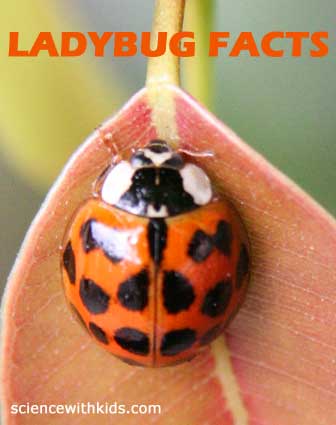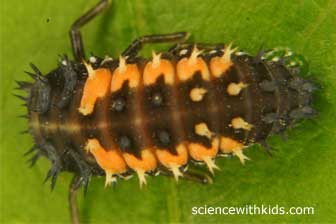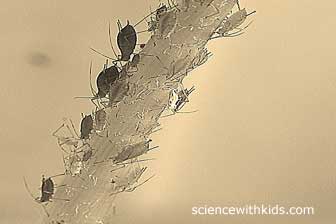Facts about Lady Bugs
Posted by Admin / in Science Facts

Facts about Lady Bugs
- Lady bugs are insects.
- There are over 4000 different kinds of lady bugs.
- Lady bugs have six legs.
- A lady bug's body has three parts including the head, the thorax and the abdomen.
- Lady bugs have a complex 6 stage life cycle, which starts as an egg and finishes as a flying insect.
- It takes about 6 weeks once a lady bug egg is laid until it becomes a fully-grown flying insect.
- It takes about a week for a lady bug to hatch from its shell. After a lady bug hatches from its shell, it normally eats part of the shell because it contains nutrients that help it grow.
- Once a baby lady bug hatches, it is called a larva.
- Lady bug larva eat insects called aphids. Aphid are tiny insects that are considered pests because they eat plants.
- As the lady bug grows, it sheds its skin three times. This is called molting
- Before it is fully grown a lady bug forms a hard shell called a pupa. After about a week of being a pupa, the lady bug emerges from the shell.
- It takes another two days until the lady bug's body is strong and its wings are developed. Over these two days the lady bug also develops its color. Some lady bugs are red with black spots and others are orange.
- Lady bugs, including larva, can release a smelly orange fluid. This fluid tastes bad to predators like birds and larger insects.
- Lady bugs that survive through the fall, will generally survive through the winter by hibernating. Lady bugs hibernate in groups under tree back, piles of leaves or in buildings.
- The lady bugs that survive through the winter start the life cycle again in the spring. Lady bugs only live through one winter.

Ladybug larva have spikes on their backs to help them protect themselves.

The favorite food for ladybugs are aphids

Ladybug pupa
